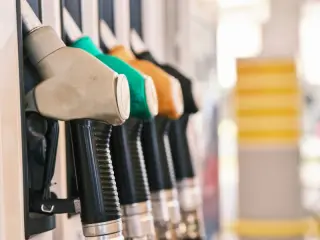
For drivers, filling up with supermarket petrol is usually cheaper than other forecourts, and with searches for “cheapest diesel near me” up 49% in the last three months, drivers are looking for ways to save. While most people are happy to look for the cheapest option when buying fuel, some drivers have concerns about the quality of the fuel.
Matthew Briggs, CEO of Right Fuel Card, has offered his expert advice to drivers unsure of which fuel option is best for them.
Cost considerations
Supermarket fuel cost
“There's a widespread belief that supermarkets like Tesco, Asda, Sainsbury's, and Morrisons offer fuel at a more affordable rate than branded alternatives, and this is completely true. These supermarkets engage in intense competition when setting their petrol prices, ultimately leading to reduced costs at the pumps.”
Branded fuel cost
“Unsurprisingly, due to the additions of detergents and other chemicals, the price of premium fuel is more than that of regular fuel. Fuel prices vary nationwide based on location. For example, rural regions might offer more affordable fuel compared to bustling cities.”
“The critical advice is avoiding motorway fill-ups due to their excessively high prices. Petrol stations capitalise on the fact that when you're on the motorway and running low on fuel, you're compelled to pay regardless of the cost.”
“However, some additives can improve the efficiency and lifespan of older vehicles and the benefits of modern vehicles (in terms of reliability, MPG, and cost of upkeep) mean that older cars can be impractical for a fleet owner.”
Are premium fuels better for your vehicle?
“Premium fuels, also referred to as ‘super’ or ‘high performance’ fuel, have a higher-octane rating than other fuels offered at the pumps. This means that the fuel is harder to ignite, requiring greater compression than lower octane fuels. Alternatively, if you have a diesel engine, the premium equivalent will come with a higher cetane rating.”
“Typically, high-performance engines will compress their fuel more, so by using a higher-octane fuel, you’re able to avoid internal explosions that may damage your engine.”
“Branded fuels often label their products with different names. However, when deciding what’s best for your vehicle, it can be more helpful to focus on the octane content of the fuel for an accurate measure of the quality.”
“Some vehicles do benefit from higher octane fuels and are recommended as standard, but the simplest way to find out what octane best suits your car’s engine is to check your car’s handbook. You may also be able to find this information on the casing around your fuel cap.”
“If your vehicle doesn’t require a higher-octane fuel, but you still fill it up with premium fuel, you may not see any immediate changes in performance, as the impact does vary depending on the make and model of your car, but over the longer term, you may find improvements in terms of reduced wear and tear on the engine.”
Quality assurance considerations
“It’s worth noting that all petrol and diesel sold in the UK must conform to British and European standards. This is "E10" for unleaded petrol and EN 15940 for diesel fuel. Therefore, they all work in the same way, and if you combine fuels from different sources, they would all work without an issue.”
“The fuel you find in supermarkets has the same regulations as premium sellers. And they’re held to the same quality and safety standards. So, although it’s cheaper, you can be reassured that you aren’t buying a harmful or unsafe product.”
“However, there are differences between the fuels you can buy today when you take into account the additives that are sometimes added.”
Performance and mileage considerations
Supermarket fuel performance
“While meeting basic standards, supermarket fuels might not have the same specialised additives found in branded fuels. This disparity could affect engine performance and fuel efficiency, potentially resulting in reduced mileage over time.”
Branded fuel performance
“Branded fuels are engineered with advanced additives tailored to enhance engine performance. They burn cleaner, reducing carbon buildup and potentially extending the life of engine components. This can translate into better mileage and decreased maintenance needs for your fleet.”
Matthew Briggs expands: “The bottom line is that there's no downside to going for supermarket fuel, as it's usually cheaper and won’t damage your vehicle. Remember that all fuel in the UK adheres to British Standards, ensuring your vehicle remains unaffected. Given the rising cost of living, opting for affordable fuel can be a sensible option.”
For more information about Right Fuel Card, and for which fuel type is right for you, please visit: https://www.rightfuelcard.co.uk/news/supermarket-fuel-vs-branded-which-is-best-for-my-fleet
END
Data
1) Brandwatch data, correct as of 22/09/25
About Right Fuel Card
Right Fuel Card is an independent distributor of fuel cards with a mission: to simplify the fuel management of businesses across the UK. Right Fuel Card is proud to be part of Edenred, a leading digital platform for services and payments and the everyday companion for people at work, connecting 60 million users and 2 million partner merchants in 45 countries via close to 1 million corporate clients.




